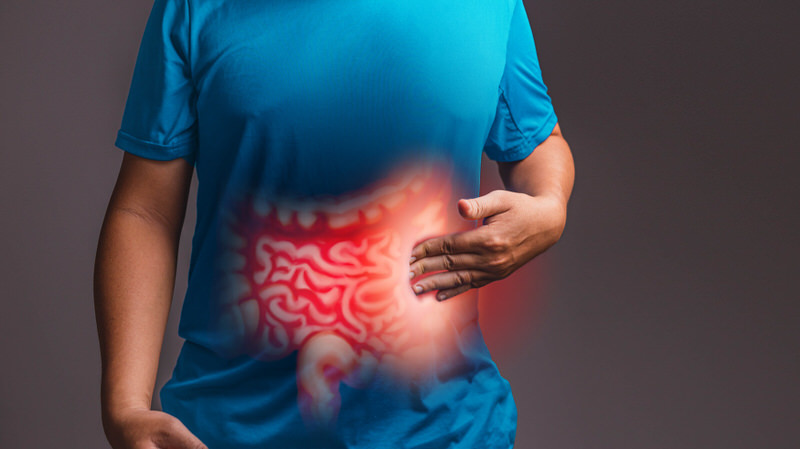If you’ve been studying your stomach or the digestion process, you might have heard the terms prebiotics, probiotics, and postbiotics. And unless you’ve spent some time studying biology, you might have some trouble understanding what these terms exactly are. Ever since we were little kids, we were told bacteria is bad. They make you sick.
But while you might know about bacteria that live inside you, did you also know that some bacteria could be useful? This only raises more questions. What are postbiotics? Are they bacteria? Should I be worried about bacteria in my stomach? What is Butyrate acid? What foods have postbiotics? What are the difference between prebiotics, probiotics, and postbiotics? What’s the relationship between Butyrate acids and postbiotics?
Prebiotics are food (mostly fiber) which our bodies can’t digest. Certain bacteria (aka. Probiotics) digest the prebiotics and create postbiotics. One of the short-chain fatty acids that make up postbiotics is the Butyrate acid. This acid has shown many promising benefits ranging from benefiting your gut, to your brain. But unfortunately, the lack of human studies conducted on this acid has made it difficult to recommend it as a supplement.
Pre vs Pro vs Postbiotics
You might have known before, or even read about it in the introduction but by now you’ve heard of probiotics, prebiotics, and postbiotics. To put it simply, the 3 “biotics” are food for bacteria, bacteria, and a byproduct of the bacteria eating the food. The special factor is that these bacteria are good for you, and you need them to have a healthy life. They have a symbiotic relationship with us, unlike the majority of other bacteria.
The below table has some of the key similarities and differences of these three types of bacteria.
| Prebiotics | Probiotics | Postbiotics |
| Fibers that your body cannot digest | The bacteria that digest prebiotics | Any material left over after the probiotics have finished digesting the prebiotics |
| Usually found in vegetables like onions, garlic, leeks, kale, and oats | Found naturally in your stomach | Can be found in fermented dairy products |
| Prebiotic fibers are partially broken down in the large intestine | Also found inside fermented dairy products like cheese, yogurt and miso | Can include parts of dead bacteria such as cell walls |
| Bacteria acts on these fibers to produce short-chain fatty acids | Digests the prebiotics which couldn’t be digested in the small intestine | Byproducts of prebiotic digestion |
| Dead material | Living bacteria | Dead material |
Looking at this table gives us a better idea of the relationship between prebiotics, probiotics, and postbiotics. While all 3 can be found in the food we eat, prebiotics are where the process starts. Once eaten, the probiotics will digest the prebiotics, leaving postbiotics as a byproduct.
What do postbiotics do?
Since postbiotics seem to be just what’s left over after the probiotics have done their job, you might be thinking that they are useless. But this is not the case. Postbiotics are the result of the hard work done by probiotics.
Postbiotics are mostly short-chain fatty acids, peptides (proteins), and dead materials. Postbiotics have also contained GABA, serotonin, and amino acids in small quantities. Unfortunately, postbiotics research is still ongoing, but there is existing research done with many positive results.
- Reducing the risk of cancer – Remember the short-chain fatty acids which were a part of the postbiotics? One of the short-chain fatty acids in postbiotics is butyrate. Butyrate is a well-known anti-cancer agent specifically know for reducing the risks of colorectal cancer. The presence of butyrate acid within postbiotics was confirmed by a study in 2019.
- Preventing Type 2 Diabetes – A study conducted in 2017 proved that the bacterial components in postbiotics promote insulin resistance. This can help prevent obesity and also Type 2 Diabetes.
- Improving gut health – Postbiotics can also improve the quality and speed of the digestion which happens inside your intestine. It has also been proven even to benefit your nervous system and brain. Unfortunately, adequate research is still being carried out into the neurological benefits of postbiotics.
What is Butyrate acid?

Butyrate acid is also known as Butyric acid and is one of the three short-chain fatty acids that are included in postbiotics. This fatty acid is also found in certain animal fats and vegetable oils, but more commonly found in your stomach as a postbiotic.
Butyrate acid is the best food source for your colon cells. Because of this, your intestine cell walls absorb the butyrate acid almost as soon as it is created.
Using Butyrate acid, your colon cells can multiply and avoid dying. But this isn’t the only benefit of Butyrate acid. Most of the above benefits of postbiotics originate from Butyrate acid.
Below are some benefits that weren’t mentioned in the list of benefits of postbiotics.
- A study conducted in 2013 confirmed that Butyrate acid helped reduce the pain experienced by people with Irritable Bowel Syndrome over 4 weeks.
- Another study in 2005 tried to prove that Butyrate acid helped treat and manage Crohn’s disease. Unfortunately, while there were some positive findings, very few studies have been conducted in this area to provide a firm conclusion.
- Butyrate acid is also known to maintain the protective mucus layer on your stomach walls. This layer is what keeps your digestive juices from going to work on your stomach. It also helps intestinal motility and movement.
- Improved cognition and better long-term memory were reported by another study. However, this study was conducted on mice and whether this effect is valid for us is yet to be seen.
Now that you know the benefits of probiotics, postbiotics, and Butyrate acid, you might be wondering how you can increase the creation of Butyrate acid. Or you might want to just want to try and see if you feel any different. Either way, you can try the below list of foods to increase the amount of postbiotics being created inside your stomach.
The key sources of Butyrate acid

Based on the previous paragraphs, you might have guessed that most of the sources of Butyric acid are dairy. And you’re right! But even then the amount of Butyrate acid found is very low compared to the other nutrients found in these foods.
- Butter
- Milk (goats, cows, and sheep)
- Red meat (A surprising but welcome addition to this list)
- Ghee and Parmesan cheese
Another way to increase the Butyrate acid in your body is of course to increase the prebiotics for the probiotics to feed on. More prebiotics means more postbiotics. The below foods can help the probiotics in your stomach create postbiotics which in turn consist of Butyrate acid, among other nutritional materials.
Since most of the foods with prebiotics are fibrous, the below list is full of fruits and vegetables. To make it easier for you to use to incorporate these foods into your daily diet, we’ve created a combination that may go well together in the below list.
- Onions and garlic
- Carrots and potatoes
- Apples and bananas
- Rice, beans, oats, and potatoes
You can of course eat these all individually or try out various combinations to get the same benefits.
Another option is to purchase Butyrate acid as a supplement. But since the research into the effects and side effects of Butyrate acid is still ongoing, it would be a good idea to consult with your doctor before taking any supplements.
The gray areas of Butyrate acid
While the vast majority of studies on Butyrate acid have shown positive results, especially towards stomach-related health, the below factors can give you some cause to think twice before reaching a decision.
- A lack of studies – Postbiotics themselves are a relatively new finding. Very little has been discovered about the effects of Butyrate acid. Out of these studies, some are not even conducted on human subjects. While it’s unlikely that Butyrate acid could be bad for you, there is no way to guarantee how much of it is too much.
- Difficulty differentiating between the short-chain fatty acids – Butyrate acid is just one of three short-chain fatty acids. It can be very hard to separate the acids from each other. It can also make it difficult to isolate the different effects of each acid.
These are the main reasons why Butyrate acid is not yet approved by the FDA, making the supplements legal but not guaranteed to be safe. Some studies even claim that while Butyrate acid is beneficial to your gut, it might promote obesity.
Conclusion
Now that we know exactly what prebiotics, probiotics, and postbiotics are, we also know that all bacteria aren’t bad. The postbiotic, Butyrate acid is one of three short-chain fatty acids. We have seen that it has many benefits including heaving a healthy digestive tract, reducing inflammation in the stomach, reducing the risk of cancer, and reducing the risk of diabetes. Some studies even point to possible neurological benefits.
But, due to the lack of research, it would be much safer to increase the prebiotics in your daily diet, rather than take butyrate acid supplements to directly get the benefits. This minimizes the risk of taking too much Butyrate acid. After all, all you need is a glass of milk to start your day with some probiotics.


